The Fold London Podcast
All Episodes
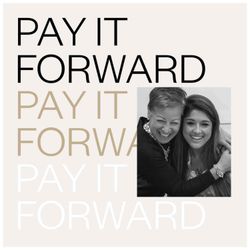
3. The Business Of Style
31:13||Season 2, Ep. 3Former fashion director at British Vogue, Lucinda Chambers and Cecily Motley co-founder of jewellery brand Motley, discuss their views on what style really means – and why you should never apologise for working hard.Top 3 Takeaways:1. Comfort is underrated. Nobody can be stylish if they’re not comfortable.2. There’s a special place in hell for people that crush other people’s confidence.3. Be more American and ask “How can I help?”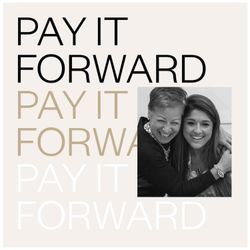
5. How to Switch Off When You’re in Charge
24:37||Season 2, Ep. 5Elaine Bedell CEO of Southbank Centre and Joanna Payne founder of networking club Marguerite discuss ways to recharge, killer interview questions, and how to avoid pointless meetings and groaning inboxes.Top 3 Takeaways:If you’re in a high-powered position, go away – if only for a long weekend – every six weeks. When you’re working flat out, you need time to reset.Don’t be afraid of hiring people who are better than you.First interviews should last no longer than 20 minutes. When you’re hiring, all you really need to ask is, “What are you going to bring to the role?”
4. Why Diversity Is Your Superpower
27:24||Season 2, Ep. 4Lawyers, Emma Woollcott and Shabina Begum discuss diversity, getting perspective in emotionally challenging roles, and the tension of wanting a family just as your career is taking off.Top 3 Takeaways:Put “TFM” (Time For Me) in your diary in between meetings, giving yourself 15 minutes of headspace before you move onto something new. You’re more powerful and more productive when you slow down.Everyone suffers from imposter syndrome. Including your boss.Women tend to think of everyone else before themselves. Remember to put your own oxygen mask on first.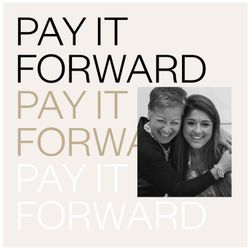
1. The Quickest Way to a Promotion
21:53||Season 2, Ep. 1Ali Hanan has worked in advertising for more than two decades, creating ads for some of the world’s biggest brands including, IKEA and McDonald’s. Charlotte Hugh is co-founder of Badass.gal and a senior creative at Dark Horses. They discuss how to get yourself noticed at work and where the best ideas come from.Top 3 Takeaways:1. Develop the “f***k-it factor”: Have the courage to put your out-there ideas on the table.2. Women tend to sit in bad jobs for too long.3. Don’t repeat the same year twice.
2. Overwhelm: How to Keep Calm and Carry On
30:33||Season 2, Ep. 2Renée Elliott (founder of Planet Organic) and Olivia Wollenberg (founder of Livia’s Kitchen) discuss embracing change, carving out “me time”, and why you need to trust your gut and tell the truth quickly.Top 3 Takeaways:1. The only thing holding you back is your own thoughts.2. Forget glossy Instagram photos. Be honest about your highs and lows. People will respect you more if you’re authentic.3. Stop focusing on the destination and enjoy the journey.
4. Making waves: Lessons from Britain’s top “accidental” sportswomen
36:20||Season 1, Ep. 4In this episode…Susie Rodgers MBE was born without a fully formed arm or leg on the left side of her body. She turned her disability into a superpower, winning six Paralympic medals during her career as a professional swimmer. She retired from competitive sport in 2017 but says transitioning into the corporate world was tough: “You don’t get much support once you’re out the system. It’s pretty cutthroat.”In 2018, Nikki Henderson became the youngest skipper in history to finish the gruelling round-the-world Clipper Race. She was just 25. Having sailed Greta Thunberg across the Atlantic to the UN climate summit in Madrid at the end of last year, Nikki is at a “pivotal” moment in her career: “I’ve hit a natural break and I’m trying to figure out what to do next.”Susie and Nikki share their triumphs and “soul-destroying moments”, their constant battle for perfection, and their tips on resilience.Top three takeaways:Everything in life is either a victory or a lesson. There’s no such thing as failure.If you’re a leader, you’re a performer. You have to get used to putting on a mask.Luck is when opportunity meets preparation.
2. How to command respect - when you have a baby face
30:24||Season 1, Ep. 2In this episode…Shona Baijal lost her father when she was in her teens. “My mother was a qualified accountant but she gave up her career to raise a family,” she says. “When she was suddenly widowed at the age of 43, she was completely lost and bewildered.” Determined to be financially independent – and help other women with long-term wealth planning – Shona joined UBS Wealth Management straight out of uni and was promoted to managing director in 2013. Now in her 40s, she doesn’t want to slow down – so what’s next?French entrepreneur Juliette Souliman also has a big role at a young age. She founded two start-ups before joining Octopus as its youngest ever investment professional and now runs her own fintech fund, CRED. And she’s still just 25. “My family all work in fashion; I’m the black sheep that went into finance,” she says. “I adore what I do but am I prioritising the right things and will I have regrets further down the line?”Our finance duo discuss how to make sure you’re taken seriously as a young woman in a room full of men, how to stay sane(ish) and how to keep evolving and developing, even when you’re at the top of your game.Top three takeaways:• Don’t apologise for who you are. Acknowledge your own strengths and play to them.• Seek discomfort: if you want “abnormal” returns, you need to make abnormal decisions.• Find the right combination of people for your “personal boardroom” – and make sure your inner circle includes men.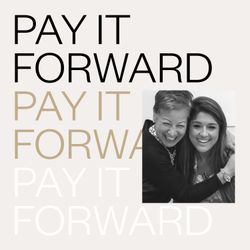
1. The highs and lows of being a super-achiever
31:21||Season 1, Ep. 1In this episode…Jacqueline de Rojas CBE spent her childhood trying to be invisible. Now, as president of techUK, she's one of the most powerful women in tech. She tells us how she went from survivor to thriver – and why she still sets her standards impossibly high: “Even if I got to a good place in everyone else’s eyes, it wouldn’t be enough for me,” she admits.Crystal Eisinger has just turned 30 and already heads up marketing strategy and operations at Google. Feeling the weight of a huge workload, she’s trying to set some boundaries and is learning to ask for help: “I wake up every day and throw myself against a brick wall, expecting that brick wall to move,” she says. “Surprise, surprise, it doesn’t budge. I just bruise myself.”They discuss the downfalls of being “hyper-vigilant”, how to have honest conversations with your boss, and why the term “mentor” needs a rebrand.Top three takeaways:• People don’t always need answers – sometimes they just need space to be heard.• If you’re struggling in the ocean, find a swim lane. Work out what “good enough” looks like.• Dress for the mood you want to be in (not the mood you’re already in).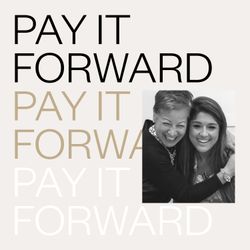
3. Reinventing your career through motherhood and midlife
35:42||Season 1, Ep. 3In this episode…Trish Halpin’s career high was in 2009, when she became editor-in-chief of Marie Claire. “I used to read Marie Claire when I was a student,” she says. “If you’d have told my younger self that I’d be editing the magazine one day, I’d have fallen on the floor in shock. Back then, I didn’t have the confidence to think I could do a job like that.” After a decade at the helm of Marie Claire, Trish, 52, is now reinventing herself as an editorial consultant and podcast host – and it’s “nerve-wracking”.Meanwhile, BITE managing editor Nicky Kemp has just turned 40, her youngest kid has started school and she’s “really ready to be ambitious”. She wants to continue working a four-day week and be a power part-timer.Our publishing pair share tips on how to pitch flexible working to your boss, how to use social media without letting it take over your life, and why women need to give themselves permission not to be perfect.Top three takeaways:• Real leadership happens when no-one is looking.• Flexibility and ambition shouldn’t be mutually exclusive.• Listening to someone is one of the most powerful things you can do for them. The enemy of love in modern life isn’t hate, it’s hurry.
loading...